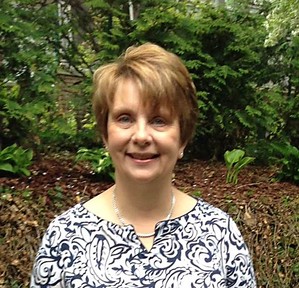Diane Agnew has only been on the job 10 months, but as the new Hunger Action Advocate (HAA) for the Presbytery of Detroit, she’s finding the work challenging, rewarding and heartbreaking at the same time. Agnew is only the second advocate to hold the position in 30 years.
Her role is to educate and assist congregations within the presbytery on hunger issues. The primary responsibility is supervising 10 food programs providing direct food relief to the hungry in and around Detroit.
“There are a lot of hungry people in Detroit despite our improved economy. The churches that are involved are smaller congregations with an aging membership,” she said. “They’re committed to their neighbors and know them well, operating out of their own buildings. It’s been a task to ensure we have the people and resources to provide food relief.”
Agnew estimates they serve groceries to more than 435 households and 1,000 meals a month. One of the biggest challenges has been funding. The presbytery is able to assist through shared mission giving and gifts to the Presbyterian Hunger Program. She says the churches also provide some financial support, but the small congregations struggle to meet those needs.
“We did help solve part of the problem by providing food through an organization called Forgotten Harvest, a gleaning organization that collects food from grocery stores,” she said. “Now we are providing a lot of meat, bread, produce and other foods to our churches at no expense so that has improved the quantity and quality of food we’ve been able to provide.
Agnew says shared mission giving has declined as the number of churches and members have declined, but once they understand their mission, she notices an uptick in contributions.
“We’ve also had fairly strong support from some congregations to give what we call an extra commitment gift,” she said. “Part of my responsibility has been to get out into the congregations and explain that food insecurity is still very real in the presbytery.”
Agnew says many people don’t realize that one in six people in Michigan are food insecure or that nearly 60 percent of children in the state live in poverty and that a third are living in extreme poverty with household incomes of less than $12,000 a year. Agnew credits the Presbyterian Hunger Program (PHP) with helping to spread the word.
“PHP is calling attention to issues of global hunger that I don’t have firsthand knowledge of. But it has been beneficial to me personally and a tremendous resource for congregations,” she said. “PHP also raises the larger issue of food sovereignty which is something we strive for but, in Detroit, our primary focus has been direct food relief.”
For the food programs she serves, they are grateful.
“For some of the children who come here, it’s the only hot meal they’ll get. Sometimes they ask for extra food to take home to a sibling, which is heartbreaking,” said Agnew. “It’s hard to see elderly people who have worked all of their lives and are forced to choose between food and medicine. Some people who use to give to the food bank are now in need of food themselves.”
While the state is beginning to see an improvement in the economy, Agnew says they still have a long way to go and the churches don’t have the capacity to do as much.
“The congregations are smaller and they are aging so I have a real concern of what will happen when this older generation of Presbyterians is no longer able to provide this kind of service in their neighborhoods,” she said. “There is a gap between those in their late 70s and early 80s who work hard on this and there is not another generation coming up to take it on.”
-----
The Presbyterian Hunger Program currently works with Hunger Action Advocates in 30 presbyteries across the U.S. The HAA position is funded through a matching grant to presbyteries from PHP as part of educating and connecting Presbyterians to the work of PHP, which receives funding from the One Great Hour of Sharing special offering.
Find the closest Hunger Action Advocate in your area or give today to support the work of PHP as the ministry works to bring hope to communities and individuals struggling against hunger.

